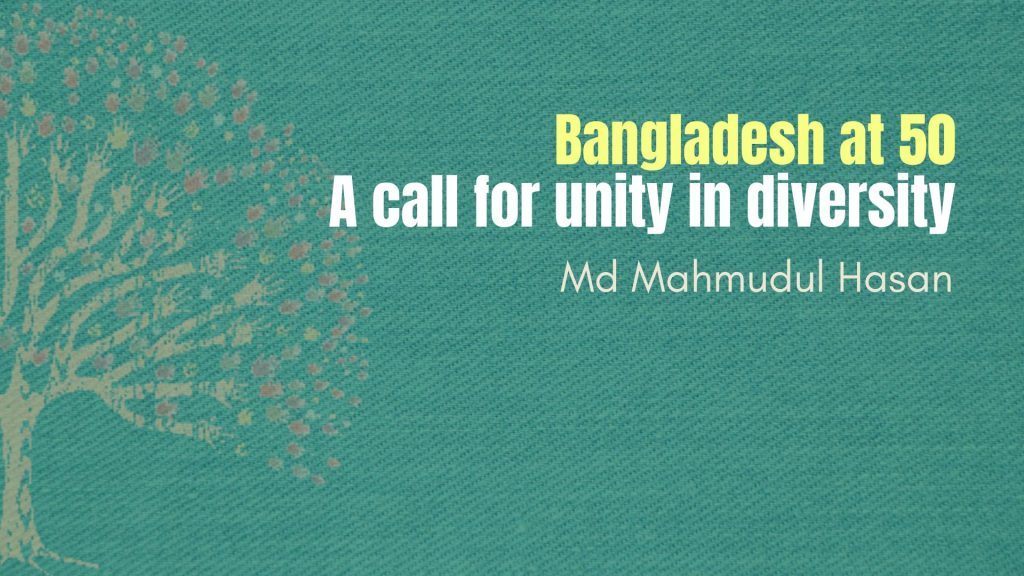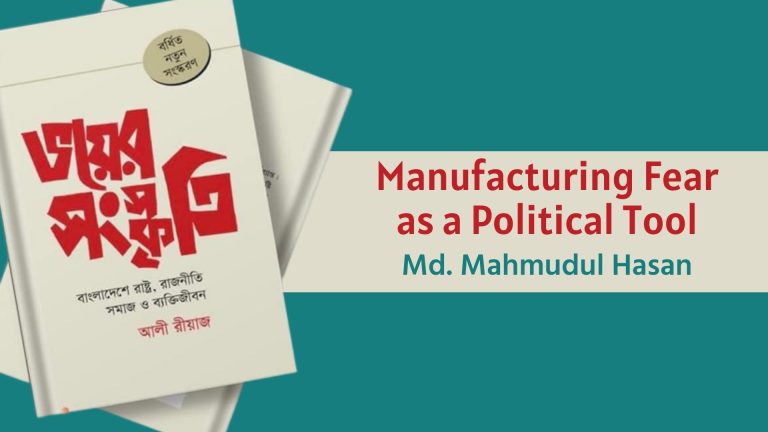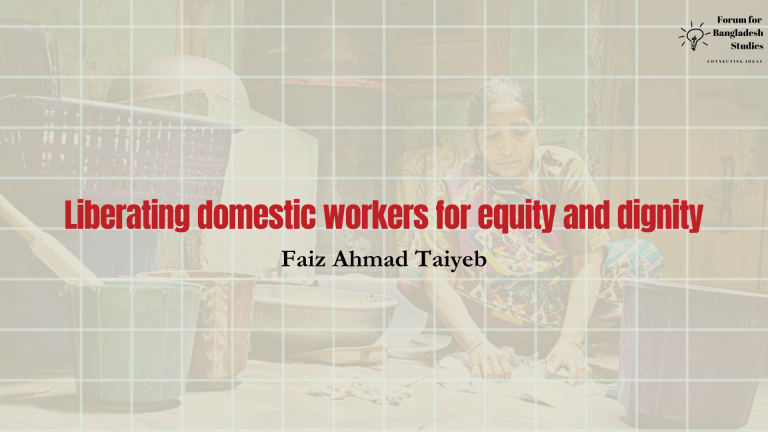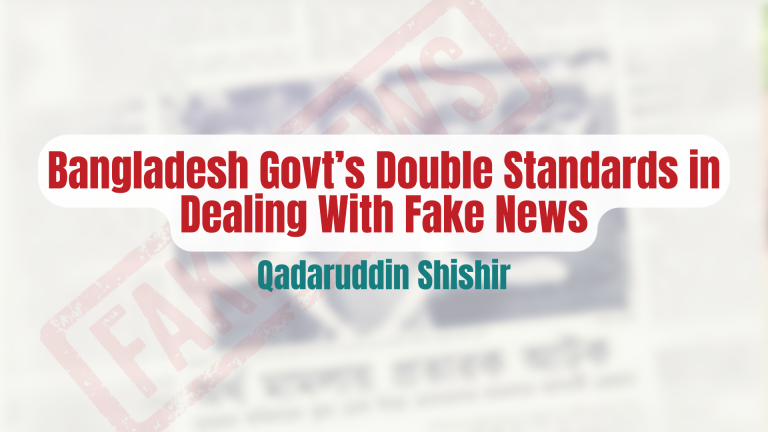THE phrase ‘unity in diversity’ is a truism. Its frequent use may have rendered it somewhat tedious and meaningless. People often say it but they do not necessarily discuss it in depth. Others accept it as a given and an obvious necessity that does not require further comment. However, the lack of unity on virtually every aspect of our national life and the prevalence of disunity on many levels have pushed us almost to the brink of disaster and doom in Bangladesh. Therefore, I believe the subject merits a serious treatment in its own right.
Before I delve deep into this topic, let me retell a story that I believe offers much needed lessons for us all.
In his monumental book Anthology of Islamic Literature (1964), the American scholar of Islamic literature James Kritzeck (1930-) has included a short story of Jalaluddin Muhammad Rumi (1207-73). The story is from Rumi’s Masnavi and is titled ‘The Sufi, the Fakih, and the Sharif, and How Their Solidarity Was Destroyed.’
As the story goes, a Sufi, a Fakih (an expert in Islamic jurisprudence) and a Sharif (a Sayyid or supposed descendant of the Prophet) invoke the wrath of a gardener by entering his orchard without permission. However, the gardener cannot punish them all by himself, as they are united and stronger together. Therefore, he works out a stratagem to sow division and disunity between them. He has at his disposal the weapons of specious flattery and misrepresentation which are sharpened by falsehood.
The gardener plays a devious trick on the Sufi and separates him from the other two for a while. He asks him to go inside and fetch a mat for his friends. In the absence of the Sufi, the gardener flatters and cajoles the Fakih and the Sharif to persuade them to abandon their friend, the Sufi. He praises the Fakih as a possessor of critical knowledge and the Sharif, as a person of noble birth and lineage. Conversely, he represents the Sufi as ‘ignoble’ and as someone not worthy of their privileged company. He convinces them to distance themselves from the Sufi once he is back so that they can enjoy his orchard as well as generous hospitality in his villa for one whole week. Thus, the gardener isolates the Sufi and, before driving him away, gives him a good beating which almost kills him.
Then the gardener sets out to drive a wedge between the Fakih and the Sharif. He tells the Sharif that he has prepared for him some luscious food and talks him into going inside the house. The gardener showers the Fakih with more praises and compliments while portraying the Sharif as a fake descendant of the Prophet. The Fakih falls under the spell of the gardener and agrees to desert his friend, the Sharif. Finding him alone and friendless, the gardener inflicts blows after blows on the Sharif and chases him away.
Having successfully dealt with the Sufi and the Sharif, the gardener now has no hurdles to punish the Fakih — who has abandoned his friends out of selfishness and greed — for entering his orchard. Nor does he need to be shrewd or deceptive this time in the art of getting the better of his opponent. Being very much in control of the situation, he now confronts the Fakih bluntly, without any subterfuge. He reprimands the Fakih and asks him which law book gave him the permission to enter his orchard.
Now the Fakih fully understands the guile and trickery of the gardener, but it is far too late to repair the error and the damage. Coming to terms with his own tragic predicament, he says to the gardener: ‘Beat me: I am in your power. This is the due recompense for one who breaks with friends.’
In some way, I find this story relevant to today’s Bangladesh, barring that we the people of the country have not trespassed on anybody’s property or land. As Bangladeshis, we comprise one big community even though we have different political and ideological beliefs or inclinations. We will be stronger together if we can ensure and strengthen our unity in diversity. We share innumerable commonalities, and our common interests are sufficient to keep us together and united. However, our common enemy, the gardener, accentuates our differences and disagreements in order to weaken us and to hound us separately for his own interests.
It will be a travesty of truth to say that we the people of Bangladesh are united as a country. We are the Sufi, the Sharif and the Fakih and there are gardeners out there who have been taking advantage of our disunity. I cannot say for sure who the gardener/s is/are. But, flipping through the pages of national dailies, I can see that perhaps currently the Fakihs in our country are at the receiving end of the un-restrained malice and fury of the gardener.
Most countries in the world have experienced national crises and political upheavals of different types and magnitudes in their journey. Each event had its own characteristics and challenges. In our case, 1971 was the year of a national crisis for both the pre- and post-1971 generations. After about a nine-month long struggle, freedom was achieved on December 16, 1971; and hence we celebrate the day every year.
Other nations in the world have also had tragedies of greater or lesser extent in their history. Perhaps it is necessary to compare our skills with those of others in pulling ourselves together after our national crisis. We need to assess how we have addressed our challenges in order to evaluate our performance in rebuilding our nation after the painful war of liberation. Such an assessment can be carried out in retrospect. Let me provide a few anecdotes and examples to measure our collective ability in a comparative manner.
In 2009-10, I was a postdoctoral research fellow at the University of Heidelberg in Germany. My wife was with me for a couple of months. We often cycled around Heidelberg and enjoyed the beauty of the city. One day we went to an agricultural farm nearby. We found many potato leftovers — both shredded and intact — littered in the post-harvest field.
We had a chat with an old German man who pointed to the littered potatoes and said: In the aftermath of World War II, people in Germany were so destitute and impoverished that you would never find such potato leftovers uncollected; poverty and hunger forced them to look for food items in such post-harvest fields. Politically, the country was in chaos and large segments of its population were internally displaced.
How long did it take for the German to rebuild their country and raise its status in the world? Not 50 years, definitely. Or, how about the agonising and harrowing experiences of the Japanese during WWII? How long did it take for Japan to recover and emerge as a major economic power in the world? Again, not 50 years.
The American Civil War lasted for four years, from 1861 to 1865. It was such a big event in the history of the USA that, as of 2018, ‘[o]n average, one book on [it] has been published every day since the end of the conflict in 1865.’ Abraham Lincoln was elected to the presidency on an anti-slavery platform. The country was divided between North and South — the Union and the Confederacy. The slave-owning southern states sought to continue slavery and the northern states were opposed to it. Eventually, eleven southern states seceded from the United States and declared the Confederate States of America in order to preserve the institution of slavery.
In a relatively young USA, the civil war broke out between the industrialising, abolitionist northern states and the slave-owning, anti-abolitionist southern states. In a decisive battle in Pennsylvania’s Gettysburg, the Union armies defeated those of the Confederacy. It was there on November 19, 1863 afternoon, president Abraham Lincoln delivered his famous Gettysburg Address and hoped that ‘government of the people, by the people, for the people, shall not perish from the earth.’
The civil war ended on April 9, 1865 and the Confederate forces surrendered. After a few days, on April 15, 1865, president Abraham Lincoln was assassinated for his efforts to extend civil liberties to all people of America. Well over half a million soldiers and an undetermined number of civilians died in the American Civil War. After such a national calamity, how long did it take for the people of America to be united again and to rebuild their country? Not 50 years. By the way, there are still supporters of the Confederacy, but they do not dominate the public sphere.
Fast-forward to the twenty-first century, let’s see what has happened in Britain recently. The country was a member of the European Union for 47 years, from January 1, 1973 to January 31, 2020. On June 23, 2016, the people of Britain went to the polls for a referendum to decide whether they should ‘remain’ part of the European Union or ‘leave’ it. In the run-up to the referendum, the country was sharply divided even though there was no bloodshed. The ‘leave’ vote had a narrow victory over the ‘remain’ vote, by 52 per cent to 48 per cent. Eventually, the UK left the EU.
In post-Brexit Britain, do we see any animosity among the people of the country on the question of ‘remain’ and ‘leave’? On the Brexit question, do they spew hatred and incite violence against one another? Not really. As a mature nation, they have put it behind them and continue to build their country.
What about us? Fifty years on, we are still engaged in mudslinging that has left the new generation confused. Even those of my generation who were born after the liberation war of 1971 are expected to take sides against one another and get involved in divisive and exclusionary politics.
As a country, we have not demonstrated enough maturity in coming to terms with our past or in connecting us with our futures. We have failed to build a better future for us or for our children. The young are confused and without any sense of direction; the educated youths are frustrated and plagued by feelings of inadequacy; and many consider the country a big prison. All these are results of our disunity. We need to be united on some core values and universally-accepted moral principles even if we may remain divided on certain questions.
I am not suggesting that we bury all our differences. As human beings, we will continue to have differences of opinion and various forms of divergences. But we still need to accept each other as fellow Bangladeshis and agree on shared values such as honesty, integrity, decency and transparency. We also need to be united against the threats of dishonesty, hypocrisy, deceit, indecency, corruption, sleaze and all forms of manipulation.
If we all who love justice, accountability and fair play and hate injustice, oppression and discrimination are together, the aforementioned gardener can’t do much to divide and disintegrate us or to harm our collective interests. However, the gardener and his stooges do not want us to focus on such core values, as they seek to fish in troubled waters. The gardener’s flattery, misinformation, lies, half-truths and post-truths have blinded us to the real crisis that has been crippling us.
In the names of all those who gave their lives for Bangladesh, I am urging my fellow country people to be united on our core values and put our best efforts individually and collectively into making the land prosperous, secure and more liveable. That will give us honour and dignity on the world stage as a nation. Let this be our resolution while we celebrate our 50th Victory Day.




